My brother is building a tiny home out of a 20ft container trailer and wants to be off-grid. He was considering a Yeti 3000 as a temporary solution to just run a fan, fridge, charge his cell and watch a few hours of tv along with a couple of lights but I noticed this and was going to tell him to consider this. I'm new at this and trying to work out the details on getting a solar system for my home but are these "solar generators" any good or a waste of money. I will admit, I do have a KYNG Power unit I use that I can use to charge up phones, run a fan, charge a laptop, etc. in case of emergencies. But it's only 500w with about 280wh
Here are the specs -
3KW solar power generator with 4.5 Kwh lithium battery
Rated Output Power: 3,000W Pure Sine wave 120VAC/ 60Hz/
Surge Power: 6,000W
Interver Type: Low frequency pure sine wave (single phase L+N)
Output Voltage: 120VAC/60Hz
Max.PV Power: 1,500W
Max. PV input voltage: 150V
Solar Charger: MPPT 48V/30A
AC Charger: 120VAC/1KW (Max)
Car Charger: 12VDC/10A (Max)
Built-in Battery Bank Capacity: 4,500 Wh (Lithium)
Gross Weight(Kgs): 55 Kg
product Size(In): L 19.8 in* W 12.5 in * H 19 in
GOAL ZERO YETI 3000 LITHIUM PORTABLE POWER STATION WITH WIFI
Here are the specs -
3KW solar power generator with 4.5 Kwh lithium battery
Rated Output Power: 3,000W Pure Sine wave 120VAC/ 60Hz/
Surge Power: 6,000W
Interver Type: Low frequency pure sine wave (single phase L+N)
Output Voltage: 120VAC/60Hz
Max.PV Power: 1,500W
Max. PV input voltage: 150V
Solar Charger: MPPT 48V/30A
AC Charger: 120VAC/1KW (Max)
Car Charger: 12VDC/10A (Max)
Built-in Battery Bank Capacity: 4,500 Wh (Lithium)
Gross Weight(Kgs): 55 Kg
product Size(In): L 19.8 in* W 12.5 in * H 19 in
GOAL ZERO YETI 3000 LITHIUM PORTABLE POWER STATION WITH WIFI
- Cell chemistry: Li-ion NMC
- Pack capacity: 3075Wh (10.95V, 280.8Ah)
- Single Cell Equivalent Capacity: 842Ah @ 3.65V
- Lifecycles: 500 Cycles to 80% capacity (Discharge rate: 1C, Full charge/discharge, Temp: 25C)
- Shelf-life: Charge every 3-6 months
- Management system: PWM charge controller, low battery protection
- Weight (Yeti & MPPT charger): 68.6 lbs (31.1 kg)
- Weight (cart only): 8.9 lbs (4 kg)
- Dimensions (Yeti only): 10.1 x 15.3 x 13.1 in (25.7 x 38.9 x 33.3 cm)
- Operating usage temp. 32-104 F (0-40 C)
- Warranty 24 months
Attachments
-
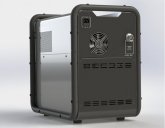 982fa9_822120770a584cf0bb0b3f58955a31f9_mv2.jpg37.6 KB · Views: 7
982fa9_822120770a584cf0bb0b3f58955a31f9_mv2.jpg37.6 KB · Views: 7 -
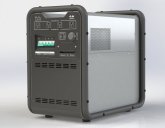 982fa9_dae9dc8d1bfe45b59a79030a7e8af9ab_mv2.jpg39.3 KB · Views: 7
982fa9_dae9dc8d1bfe45b59a79030a7e8af9ab_mv2.jpg39.3 KB · Views: 7 -
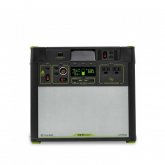 8307a5afb2bdfcbc28f1493bfb43dd58.jpg38.8 KB · Views: 6
8307a5afb2bdfcbc28f1493bfb43dd58.jpg38.8 KB · Views: 6 -
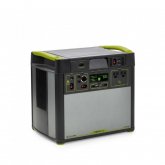 c91b4bd8b91b992bcb4dd5153df6ab01.jpg37.3 KB · Views: 4
c91b4bd8b91b992bcb4dd5153df6ab01.jpg37.3 KB · Views: 4 -
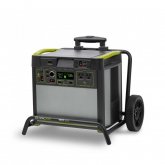 52c02d0ca079ce5e5dcbadd04e739c51.jpg42.6 KB · Views: 4
52c02d0ca079ce5e5dcbadd04e739c51.jpg42.6 KB · Views: 4


